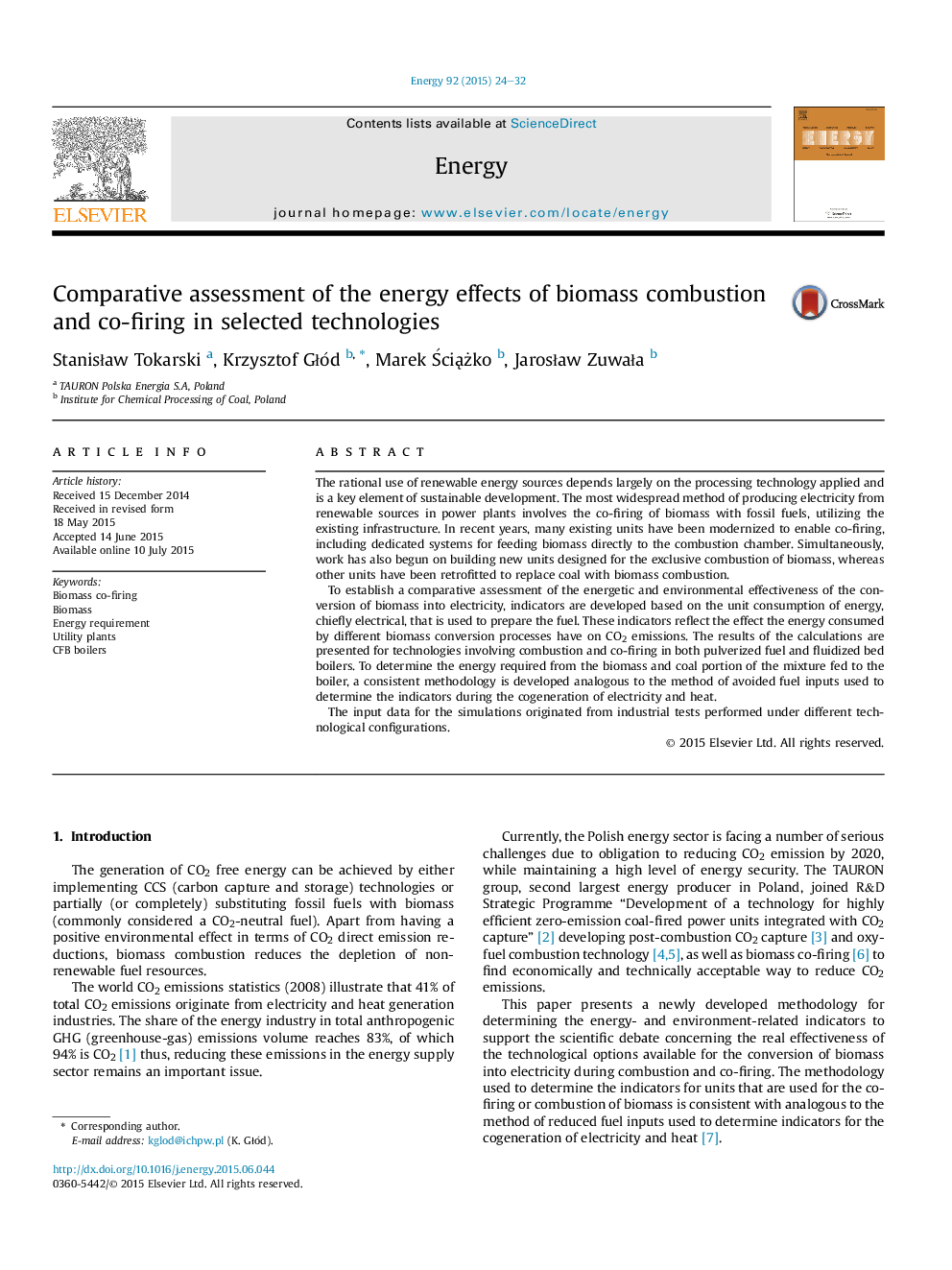| Article ID | Journal | Published Year | Pages | File Type |
|---|---|---|---|---|
| 1731387 | Energy | 2015 | 9 Pages |
•New methodology of the analysis of a power plant efficiency was proposed.•The method takes into account a breakdown of energy consumption to drive boiler devices.•The input data for analysis based on tests under different technological configurations.•The analysis can be apply for co-firing in pulverized fuel and fluidized bed boilers.
The rational use of renewable energy sources depends largely on the processing technology applied and is a key element of sustainable development. The most widespread method of producing electricity from renewable sources in power plants involves the co-firing of biomass with fossil fuels, utilizing the existing infrastructure. In recent years, many existing units have been modernized to enable co-firing, including dedicated systems for feeding biomass directly to the combustion chamber. Simultaneously, work has also begun on building new units designed for the exclusive combustion of biomass, whereas other units have been retrofitted to replace coal with biomass combustion.To establish a comparative assessment of the energetic and environmental effectiveness of the conversion of biomass into electricity, indicators are developed based on the unit consumption of energy, chiefly electrical, that is used to prepare the fuel. These indicators reflect the effect the energy consumed by different biomass conversion processes have on CO2 emissions. The results of the calculations are presented for technologies involving combustion and co-firing in both pulverized fuel and fluidized bed boilers. To determine the energy required from the biomass and coal portion of the mixture fed to the boiler, a consistent methodology is developed analogous to the method of avoided fuel inputs used to determine the indicators during the cogeneration of electricity and heat.The input data for the simulations originated from industrial tests performed under different technological configurations.
